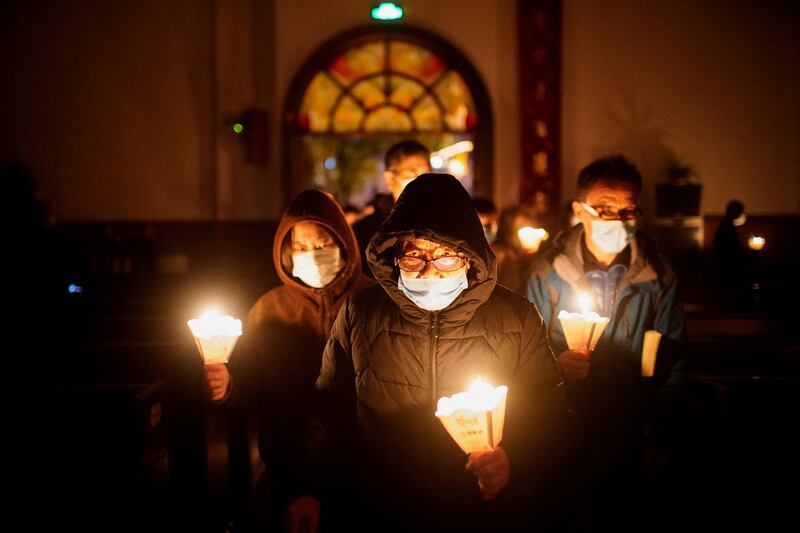Religious affairs authorities in China have published an online database of Buddhists and Taoists' personal details, apparently in a bid to tighten state control over who is allowed to take part in religious activities.
The state-backed Buddhist Association of China and Taoist Association of China launched the database on Feb. 22, state news agency Xinhua reported, citing "frequent cases in recent years of fraudsters posing as religious figures."
"This searchable database ... will help curb the chaos caused by fake monks and Taoist taking money for teaching," the report said.
It said similar databases for Muslim, Catholic and Protestant clerics would soon follow.
The Chinese Communist Party, which embraces atheism, exercises tight controls over any form of religious practice among its citizens, including what clerics may or may not say in places of worship, on who may call themselves a religious follower, and over where they may gather and with whom.
Local officials have also used brainwashing and torture tactics to get Christians, Muslims and Tibetans to renounced their allegiance to any power other than Beijing.
An official at the Chengdu municipal branch of the ruling party's outreach and influence arm, the United Front Work Department, told the People's Daily newspaper that "criminals have been using their religious identities to recruit followers, attract support, build temples and sell religious supplies at high prices."
Members of the public will be able to search the database using the person's name, religious title, ID card number or location, the report said.
"If the person being queried is indeed a religious cleric who has been registered according to law, the system will display the relevant information," it said.
‘Strengthen official ideology’
Shandong-based Buddhist monk Zhang Chao, who goes by the religious name Shi Daoguo, said the move represents a further tightening of religious controls.
"They want to strengthen official ideology. Under their severe brainwashing, they see Buddhism as a form of socialism," said Zhang, who has been repeatedly harassed by local officials for his outspoken views on the government's treatment of Buddhists.
"But as practitioners, we also pay heed to the words of the Buddha."

In 2019, the authorities in Shandong sentenced Zhang to one year and eight months for "picking quarrels and stirring up trouble."
"I was relatively active on Chinese Twitter at the time, and ... was about to travel to Germany when they took me to a detention center and sentenced me for picking quarrels and stirring up trouble," Zhang said. "They won't let me renew my passport either."
Zhang said he was unable to find his own name on the Buddhist Association database.
"I don't have official certification," he said. "If I did, I would become a legal member of the temple, and would be able to go stay in other temples too."
"I can't do any [religious activities] now ... when I lived in Hangzhou and Jiangxi, they would drive me away whenever I went [to a temple],” Zhang said. "They seem to want to drive us to desperation."
Zhang said he believes that he has the right to monitor the government's actions and comment about them online.
"Overseeing the government is the right of a citizen, and I am both monk and citizen," he said. "Yet I was detained and sentenced for doing this, which was the highest honor for me.
"You have to pay a very high price to keep your human dignity in China," Zhang said.
Translated by Luisetta Mudie. Edited by Malcolm Foster.
